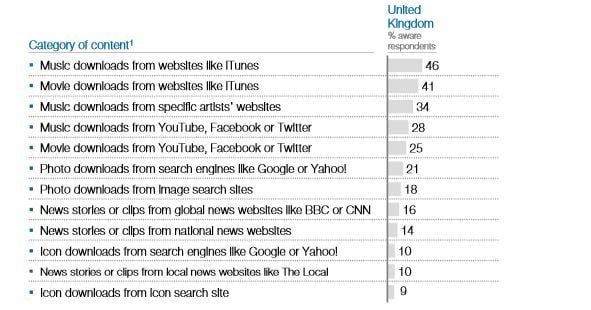In today’s Hyperconnected digital world, the World Economic forum has launched “Norms and Values in Digital Media: Rethinking Intellectual Property in the Digital Age” which includes a shared set of goals to help policymakers and businesses adapt to today’s changing norms and values.
McKinsey & Company and the World Economic Forum examine digital issues regarding intellectual property, freedom of expression and privacy.
Diana El-Azar, Senior Director of Media, Entertainment and Information Industries at the World Economic Forum, said:
“The way we create, consume and share content and information has changed dramatically in the digital era. The principles lay out a vision for the way we want our online culture to evolve.”
Protecting the rights of creators in the digital world
The report was developed by more than 100 experts in interviews and workshops that took place in 2013. It encourages individuals, private sector and civil society groups, policymakers and governments to:
- Create an ecosystem for innovation.
- Educate users about rights and ownership.
- Encourage and reward creativity.
- Enhance cooperation worldwide.
- Give owners and creators choice and control.
- Help people become creators.
- Widen access to content.
Indonesia’s Minister of Tourism and Creative Economy, Mari Pangestu, said:
“Collaboration is needed on a global level as well as a local level to effectively build a system of laws and business practices that will enable the creative and information economy to flourish in the digital age.”
The principles represent goals and values shared by people across industries and different countries. However, “differences on reaching agreement on appropriate policies and business practices among different stakeholders involved in creating, delivering and consuming content remain.”
Approximately one third of all internet users aged between 18 and 34 years in the UK and Indonesia use digital content from non-professional and professional sources to create their own content, says a World Economic Forum comScore Consumer Survey that was carried out in 2013.
Most people unaware of laws covering digital content
The majority of users (75%) in the UK are unaware of laws that they are required to follow regarding videos on YouTube. Most people have no idea about legislation covering the use of digital content.
UK survey of young people’s awareness of laws regarding digital content:
Respondents were asked: “For each of the following types of creative content listed below, please indicate if you are aware of any laws or regulations that you need to follow when you are accessing the content. Please select all that apply:”
The World Economic Forum is currently testing the principles to address conflicting views on the populations of Indonesia and the UK.
The aim in the UK is to distribute content to as many users as possible in ways that people find “compelling”, and reaching an agreement on “how policy can and should support the creative and information economy in the digital age.”
In rapidly-growing nations, such as Indonesia, close liaison with several government ministries is needed to achieve the goals.
Ed Richards, Chief Executive of Ofcom, said:
“There is a complex coordination challenge here; it is a global issue with a lot of players and conflicting economic incentives. To move forward, there often needs to be a neutral party holding the ring.”
At the end of the report, the authors concluded:
“It is still early in the evolution of norms and values in the digital era. No single solution is going to be perfect. Work this year has reaffirmed that collaboration is needed on the global as well as local levels to effectively build a system of laws and business practices that will enable the creative and information economy to flourish in the digital age.”

